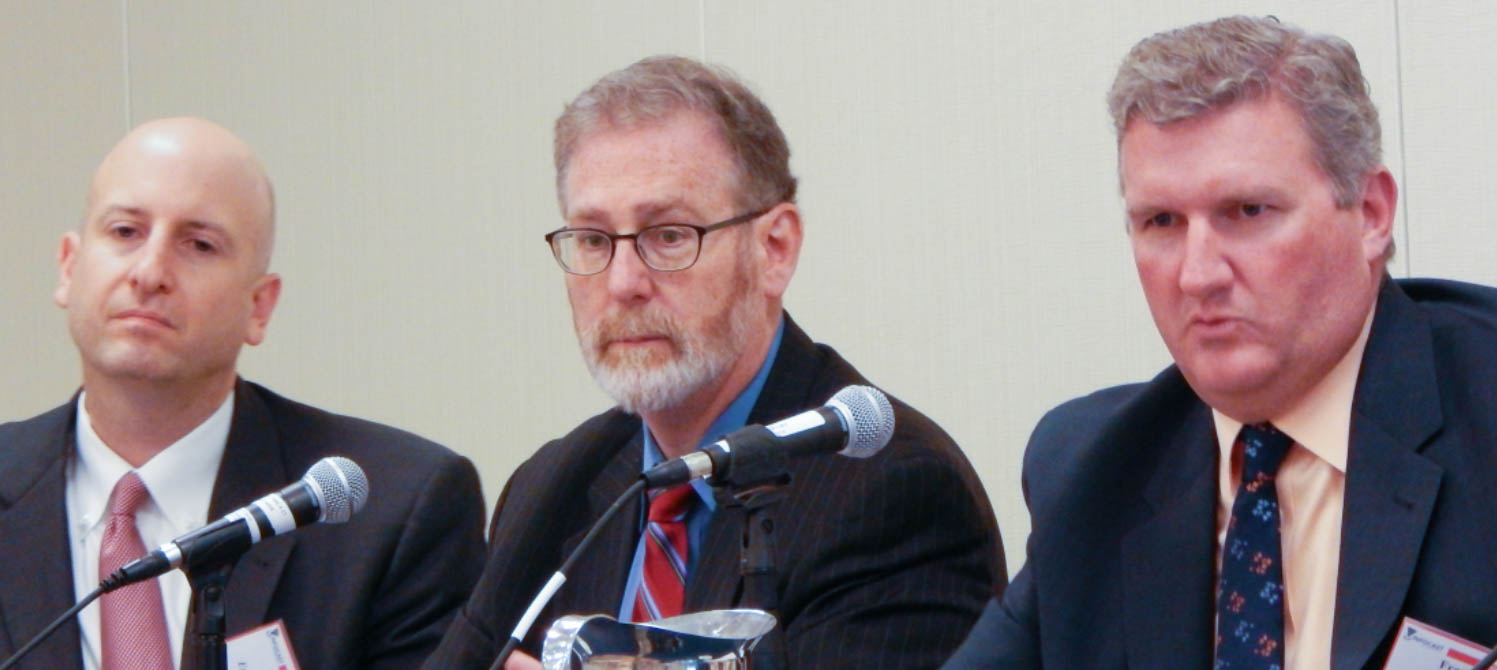Company executives say they are confident that DR will continue to grow despite the EPSA ruling that threatens its continued participation in PJM.

Demand Response Panel: (left to right) Greg Poulos, EnerNOC; Howard Learner, Environmental Law and Policy Center; Frank Lacey, Comverge
PHILADELPHIA — EnerNOC and Comverge executives last week expressed confidence that the demand response industry will continue to grow despite the appellate court ruling that threatens its continued participation in energy and capacity markets in PJM and other RTOs.
“It does put some constraints on us, but we are still signing up lots of customers,” Greg Poulos, manager of regulatory affairs for EnerNOC, told the PJM Market Summit conference.
Ruling in a challenge by the Electric Power Supply Association (EPSA), the D.C. Circuit Court of Appeals May 23 voided the Federal Energy Regulatory Commission’s Order 745, which set compensation rules for DR. The court said it improperly intruded on state jurisdiction.
In response, PJM on Oct. 7 proposed eliminating DR as a capacity supply resource, suggesting load-serving entities instead offer DR and energy efficiency to reduce their capacity obligations. (See EPSA Stay Complicates PJM’s 2015 Capacity Auction Plans.)
Frank Lacey, vice president of regulatory and market strategy for Comverge, said PJM’s proposal was fatally flawed, in part because it depends on LSEs.
“The LSEs, quite frankly, are EPSA,” he said, noting the group’s membership includes units of utilities such as Exelon, PPL and Public Service Enterprise Group as well as independent power producers such as Calpine and NRG Energy. “The generators don’t like demand response. They’re trying to get demand response out of the market” and boost prices.
Lacey said even well-meaning LSEs won’t be able to aggregate resources, a “core function” of curtailment service providers such as EnerNOC and Comverge.
“Close to 100% of the DR will not be available,” Lacey said. “It was not a well thought out solution.”
Howard Learner, executive director of the Chicago-based Environmental Law and Policy Center, predicted the Supreme Court will review the D.C. Circuit order and reverse it, making PJM’s “workaround” unnecessary.
“If the Supreme Court takes the case they will likely overturn. That’s how appellate litigation works,” Learner said.



